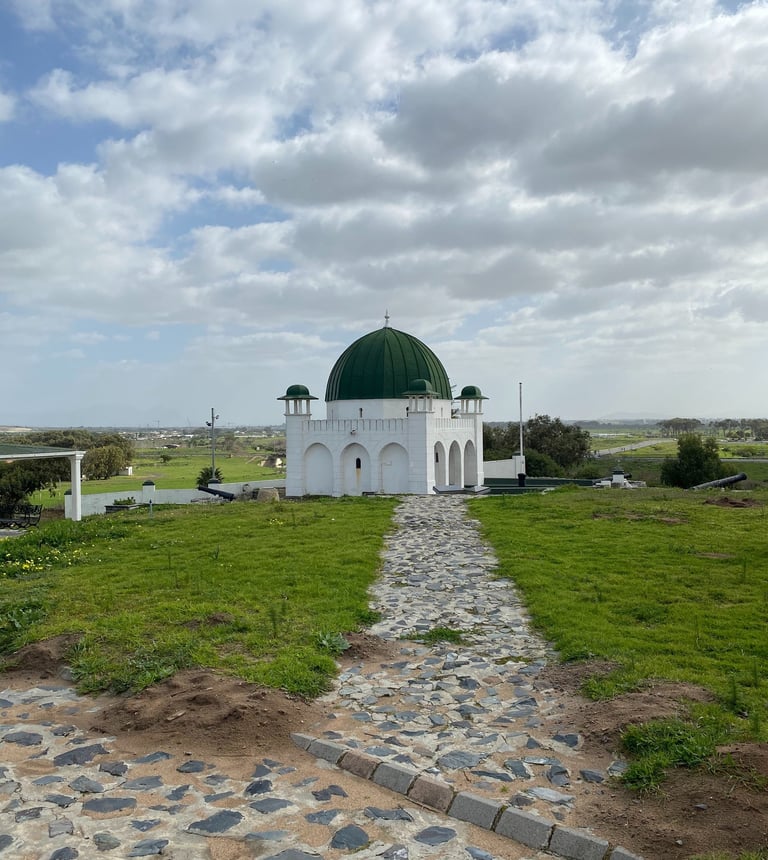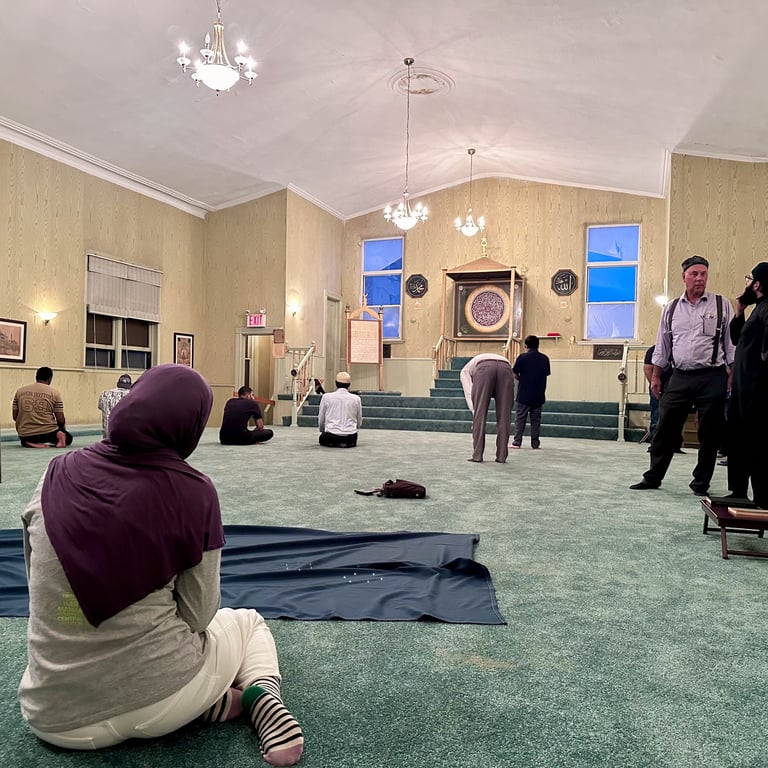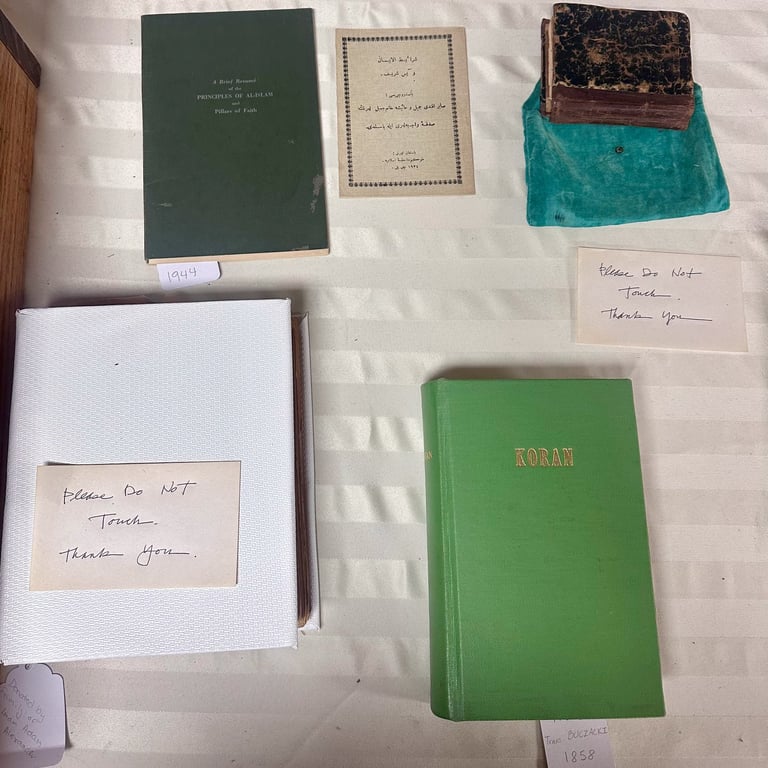PRESERVING CAPE HERITAGE AND CULTURE THROUGH EXPLORING VISUAL ARTS AND EDUCATION
Using my cultural heritage as safety and a valuable tool to move forward (PART 2)
"By preserving and honouring cultural traditions, languages, and historical accounts, heritage deepens our understanding of our origins and our ancestors' journeys. This collective memory strengthens bonds within families and communities and bridges generational divides, allowing values, stories, and wisdom to be passed down."
THROUGH YOUR PEN
Aaliyah Ahmed
9/3/20244 min read
Growing up in Cape Town, I was immersed in my Muslim heritage, which allowed me to navigate and appreciate various spaces in Cairo. From weekly dhikrs to visiting the burial sites of saints (kramats/maqaams) and a rich tradition of oral histories, my upbringing instilled a deep connection to this heritage. Visiting the kramats in Cairo, like Imam Shafi, Imam Hussein, and other scholars and saints, evoked memories of similar visits to Sheikh Yusuf of Macassar's kramat or the Tanu Baru burial site. The familiar sound of the Qur’an on Voice of the Cape, and hearing the same Qur’an reciters in the streets of Cairo through the radio, resonating with Egypt's own Qari (Qur’an reciter) Abdul Basit.
Similarly, I found myself in the middle of Brooklyn attending a gathering at a Polish Mosque, one of America’s oldest mosques, meeting people who were the descendants of the original immigrant Polish community who started the American Mohammedan Society in 1931. I did not know anything about Lipka Tatars or that they originated from the Bialystock region in Poland. But there I was, exchanging a brief history with Marian, a Polish woman whose grandfather was the Imam of the mosque decades ago. In a single evening, I was introduced to a culture and heritage that felt entirely unfamiliar yet sparked my curiosity to explore its history further due to the warmth I experienced that evening. Unfortunately, according to Marian, a lot of the descendants of the original Muslim Polish community lost a lot of their heritage the more they assimilated into American society. This was evident because she told me that a lot of people donated their families belongings to the Mosque because they did not see value in old books that were the Qur’an or prayer books. However, two years ago, a Pakistani American became interested in this mosque and started organizing weekly gatherings, reviving its rich history and heritage. Additionally, NYU (New York University) researchers began documenting and categorizing the numerous primary resources found at the mosque. This experience has emphasized how external perspectives can reveal the richness of our history and heritage. It also emphasized the cycle of history and heritage, showing that even when something is close to disappearing, its value can lead to a revival of history and heritage.
On another note, the Egyptian national dish, "koshari," is a blend of rice, pasta, lentils, tomato sauce, garlic sauce, lemon sauce, and fried onions. It is believed to have its roots in India during the late 1800s when the British colonization era was underway. The term "koshari" is derived from the Hindi word "khichri," which refers to a dish consisting of rice and lentils. British influence introduced khichri to Egypt, where street vendors enhanced it with affordable
ingredients like pasta and rice, creating a wholesome meal for the working class. When I savour the flavors and aromas of this dish, it brings back memories of my Southern and Northern Indian heritage and the traditions that travelled to Cape Town through various waves of migration from India for example, eating the Indian dish Khuri Kitchri for Eid lunch.
I reflect on the contemporary cultural heritage that shaped my upbringing, particularly music. I have always been intrigued by how the "Cape Malay" communities I grew up in embraced both weekly dhikrs (spiritual gatherings) and a passion for music. Memories flood back of listening to radio stations like Goodhope FM and Heart FM, and the nostalgic Sundays at my Nani's (maternal grandmother) house with music playing as she prepared lunch for us. This shared love for music allowed me to connect with others who appreciate artists like Whitney Houston, Atlantic Starr or Nat King Cole. Listening to music by familiar artists playing from a passing vehicle in Queens brings me comfort in a completely new setting. I am taken back to my hometown, reminiscing about where I first heard these songs. It's likely that it was during the notorious birthday celebrations of Boeta Farid's (and the likes) 60th Birthday somewhere in Salt River where there would be eating, dancing and of course, karaoke! While in New York City, while I feel like a Lonely Girl in Manhattan I think about the famous theater production Kat and the Kings by David Kramer and Taliep Petersen and how as a family we would frequently visit the Baxter Theater to enjoy South Africa's finest talent.I reflect on the journey of this theater production, originally based in South Africa's Apartheid Era, making its way to Broadway in Midtown Manhattan and running for 157 shows. This accomplishment fills me with pride as a South African connected to the community at the heart of this theatrical work.
Similarly, the sound of Amr Diab in Cairo Ubers brings back memories of my father and the Arabic music CDs he used to buy for us from Arab vendors at the GoodHope Centre fairs in Cape Town's CBD in the early 2000s. The well-known tracks bring me peace amidst the chaotic streets of Cairo. In both scenarios, I find a sense of belonging and tranquillity, each in its unique way, transforming the unfamiliar into a haven of comfort.
After recounting some personal experiences, I believe you now see how heritage acts as a powerful tool for connection. However, heritage can also offer individuals and communities a shared sense of identity and belonging. By preserving and honouring cultural traditions, languages, and historical accounts, heritage deepens our understanding of our origins and our ancestors' journeys. This collective memory strengthens bonds within families and communities and bridges generational divides, allowing values, stories, and wisdom to be passed down.
I urge you to step beyond your own cultural boundaries while still honouring your heritage. By engaging with diverse communities and histories, you will discover how your background can help you understand others' heritage. This exploration will reveal both similarities and differences, fostering a deeper appreciation for cultural diversity and it will open you up to different possibilities within.


Kramat of Sheikh Yusuf


Books at the Polish Mosque
Polish Mosque
Discover
Contact Us
Our cultural heritage matters
Help us learn and grow by sharing your respectful feedback on our website, exhibitions, social media and more:
Store's Terms and Conditions
